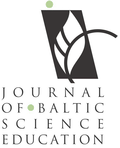| Abstract | This study has investigated the effects of problem solving instruction on physics achievement, and physics self-efficacy beliefs in an introductory physics course at university level. In this study, pretest-posttest and quasi-experimental design with a non-equivalent control group was used. Two groups of student teachers (n=77) participated in this study. During the study, one group received problem solving strategy instruction while the control group received traditional problem solving strategies. Data was collected using the Physics Achievement Test and Physics Self-Efficacy Scale. Results indicate that strategy instruction has positive effects on physics achievement, and physics self-efficacy beliefs. On the basis of the findings, it is strongly recommended that physics instructors use explicit problem solving strategy instruction in their lessons to develop students’ problem solving skills and related outcomes such as course achievement.
This study provides some evidence of the positive effects of using problem solving instruction (UQAPAC+SE) on student teachers’ physics achievement. Explicit problem solving strategy instruction was more effective than traditional instruction in improving physics achievement and self efficacy of the participating students.
In addition to assuring students’ active (curiosity and interest) participation in the problem solving activities, explicit problem-solving instruction has helped students by leading them to apply good problem solvers’ strategies on the step model while solving physics problems, and thereby helping them to improve their cognitive and metacognitive awareness, features displayed by strategic learners. Moreover, the instruction program provided students with learning activities by which students could feel successful and help their self-efficacy develop. In this context, it can be said that strategy teaching in physics may play a significant role in training strategic, successful, and high self-efficious problem solvers.
In light of the results of the present study, teachers and/or educators who do not include strategy applications in their programs because of time constraints but want to improve the effectiveness of their instructions, may review the potential benefits of strategy instruction.
The fact that the study was carried out within a regular teaching program has limitations on this study. Firstly, prompt feedback related to the problem solving sheets and self evaluation forms collected from the students after the application could not be given. In this context, the feedback related to what the students did could only be given in the following weeks lecture. The provision of prompter feedback would have meant that the students could have understood their mistakes and deficiencies immediately. Secondly, the study has been conducted within a six weeks period. It is thought that long term future studies on the same theme may prove to be useful in producing more positive effects on the results.
On the basis of the findings, it is recommended that physics instructors should use explicit problem solving strategy instruction in their lessons to develop students’ problem solving skills and the related outcomes such as course achievement. Research where the effects of instruction of different problem solving strategies in different grade levels on a physics course and different effective characteristics (e.g. learning satisfaction and motivation to learning) are investigated should be done. Problem solving strategies and courses intended to instruct these strategies should be added to the curriculums of the institutions which are educating teachers. In addition to this, many different kinds of research comparing a group where problem solving strategies instruction was implicit with the groups where it was explicit; or comparing the effects of instruction of problem solving strategies and learning strategies; or investigating the effects of instruction of problem solving strategies in computer-aided or cooperative learning groups can be done. Moreover, in further research, by supporting a strategy instruction program combined with a self-efficacy development program which can be applied in addition to a normal instruction program, more effective results could be obtained.
|
